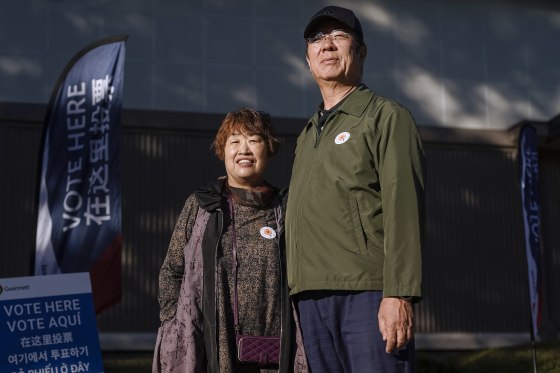DULUTH, Ga. — Less than two weeks before the election, Jacob and Mi Kwon make their way past a line of “Vote Here” banners translated in Korean, Vietnamese and Spanish to an early voting center in the Atlanta suburbs. The location is no more than a minute away from Costco-sized Asian supermarkets, Jjimjilbang spas and billboards for personal injury lawyers in Korean.
Jacob Kwon, 68, told NBC News that the couple speaks little English, but that they’ve prioritized staying informed and motivated around the election.
“It’s not just very important to us, but also for the next generation,” he said.
They are part of a mixed bag of Asian American Pacific Islander voters in the “Seoul of the South” section of Gwinnett County, a battleground district in which Asian Americans are 20.7% of eligible voters. It’s an area with a large Korean presence, where multiple cultures collide.
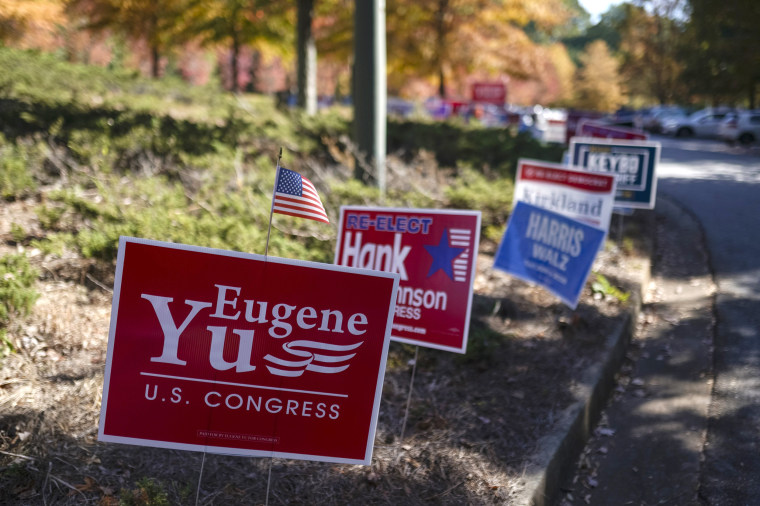
In 2020, Asian American turnout in Georgia surged by 84% compared with the previous presidential election, playing a larger role than ever in an election that Joe Biden won by a very narrow margin. And much has been made of the local Asian community since then.
Asian Americans in Gwinnett lean more Republican than the racial group does nationally and align more with voters regionally, said Chris Suh, an associate history professor at Emory University in Atlanta. Many are also newer immigrants, so specific ethnicity — Korean or Vietnamese, for example — is more of an identity than simply being Asian American. And because of that, they require long-term investment, and their votes are still up for grabs, experts say.
“National identity matters a lot more than their pan ethnic or racial identity,” said Karthick Ramakrishnan, founder of AAPI Data, a research group. “When you talk about new voters, they are persuadable.”
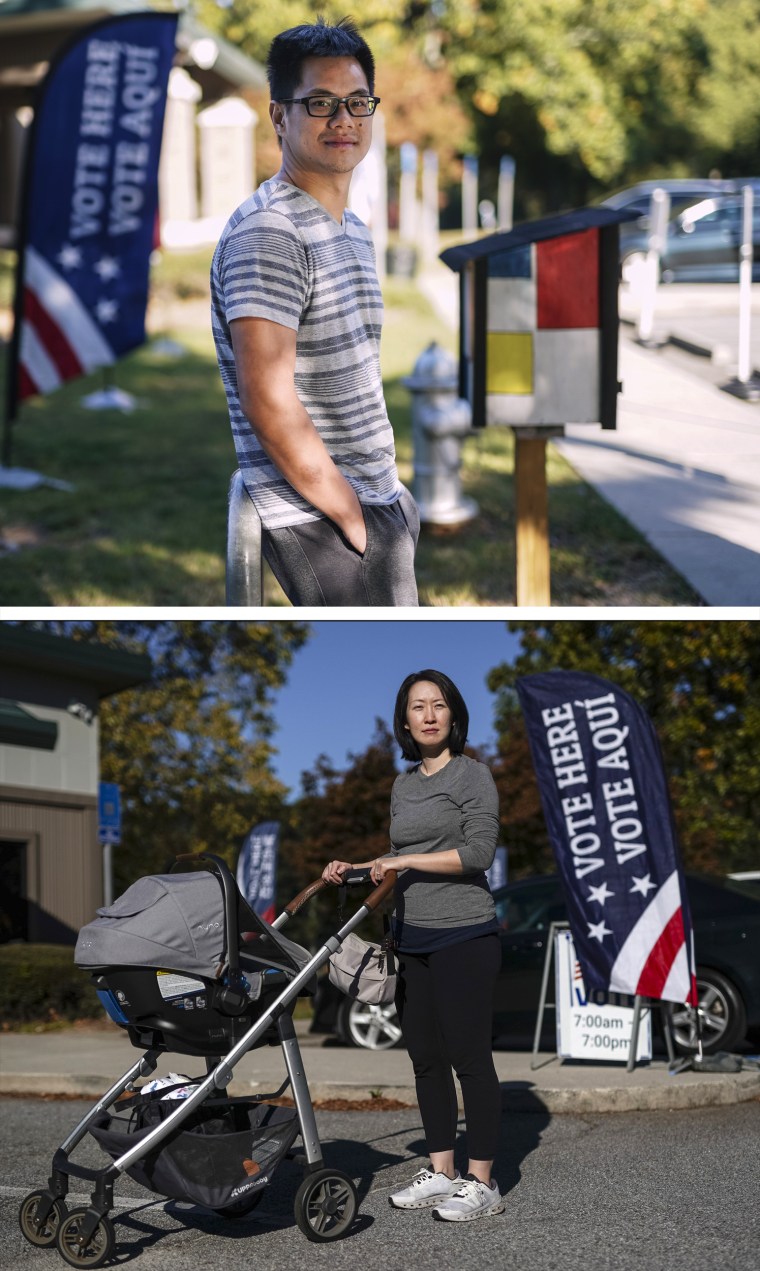
“The Asian American political community is younger, and I don’t mean age-wise,” said Phi Nguyen, an Atlanta-based senior strategist with AAPI Victory Fund, a Democratic political action committee. “It’s more nascent in building power as Asian Americans in Georgia.”
After having narrowly lost Georgia in 2020, former President Donald Trump now has a small advantage in public polling, though nearly every result has been within the margin of error. He has attempted to whittle down Vice President Kamala Harris’ support in Atlanta’s suburbs.
At home in the American South
“Seoul of the South,” a term embraced by Gwinnett County’s official tourism organization, is within an hour’s drive of Atlanta and branches out through the upscale suburbs of Duluth, Suwanee, Lawrenceville, as well as neighboring counties, and along the more working-class Buford Highway. Many Asian Americans are small-business owners or work in health care or the service industry or for international companies.
Korean immigrants began moving into the area in the 1970s, following the establishment of a Korean Consulate in Atlanta. The population continued to boom in the late ’90s after the Asian financial crisis, bringing families attracted to the community and lower costs. Since then, more than 100 Korean companies have moved into the state, including carmaker Kia, which is behind the single biggest foreign investment there.
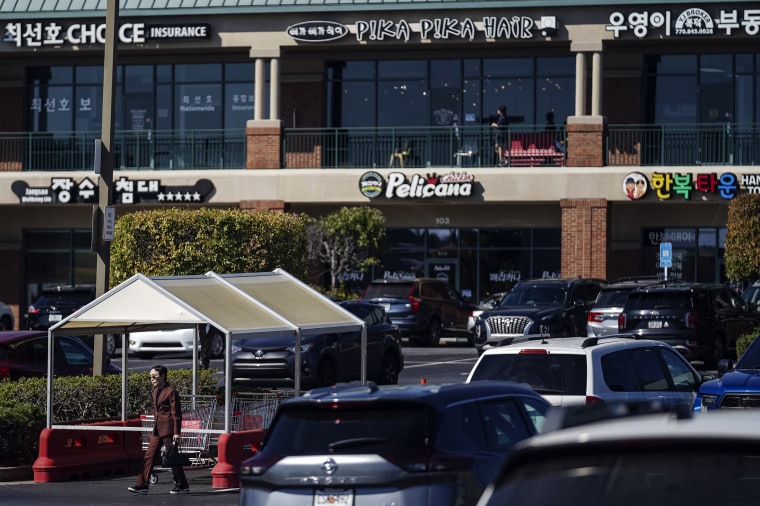
Today, Gwinnett is considered an “ethnoburb,” with churches serving as the center of social and commercial life for many Korean Americans, Suh said. Some of the economic anxieties that brought immigrants here, along with political baggage from their home countries, have led many to find common ground with the region’s locals.
“In a lot of ways, they are Southerners and conservatives,” Suh said of some segments of the population. “They arrived where they’re welcomed.”
For the past three decades, Korean BBQ, cold noodle and hot pot joints have cropped up across the county. Sprawling ethnic grocery stores have become strip mall centerpieces. And a Super H Mart in Duluth has enough unique offerings to draw people from neighboring states.
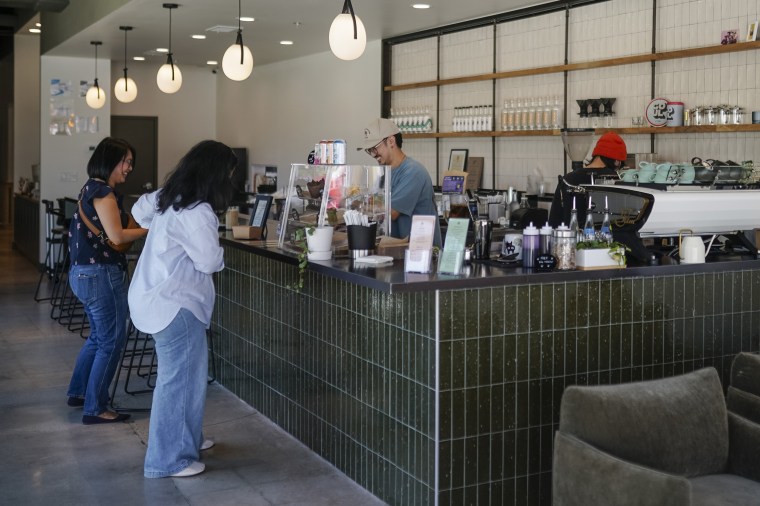
At the Gwinnett School of Mathematics, Science and Technology, the top high school in the state, Asian Americans make up almost half of the student body. Close-by Parsons Elementary School offers one of the only Korean-language immersion programs in Georgia. Clusters of cultural churches and worship centers dominate the area, a few of them — like the Yugal Kunj Radha Krishna Temple and First Chinese Baptist Church of Atlanta — doubling as polling places on Election Day.
Awakening to their political power
Contrary to the Asian communities on the West Coast, those in the Atlanta area don’t necessarily identify under the broader Asian American banner. National data shows how different ethnic and Asian immigrant communities line up differently in the presidential race and in party identification.
Nguyen, of AAPI Victory Fund, said she’s seeing a slight lean toward Harris among the racial group in the county. But, she said, days before the election, there’s still uncertainty.
“Asian Americans are not a monolith. They really aren’t,” she said. “There are definitely some voters who are undecided, and then there are voters who are enthusiastic.”
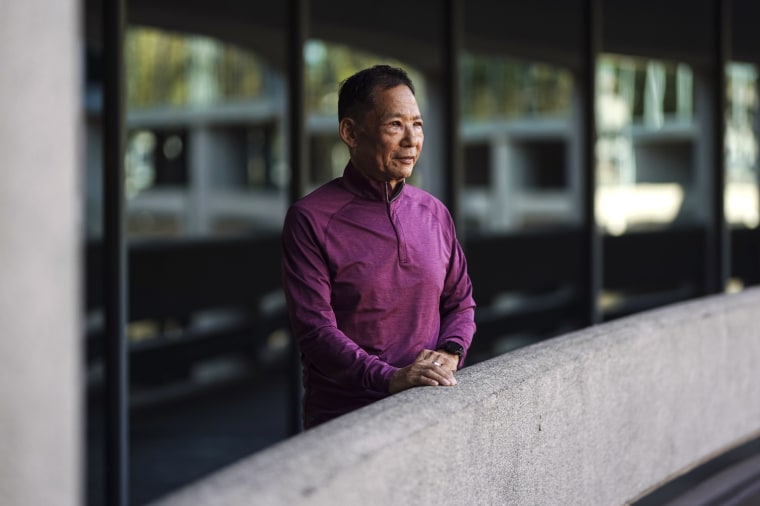
Mac Park, a 65-year-old retiree, said he’ll be voting for Harris. Park said a Trump win would spell “big trouble,” calling Trump a “rich man who’s mostly going to take care of mostly rich men.”
Meanwhile, another Asian American voter named Joe, who didn’t provide his last name, said he was “excited about change,” unhappy with the last four years and the decline he has seen in his small business. Joe, 59, who’s voting for Trump, added that he is also concerned about immigration, crime and fighting the “woke agenda.”
So far, Harris’ own identity as an Asian American hasn’t been a defining factor for voters here.
But things are starting to change. Area native James Kim, a co-founder of Minhwa Spirits, one of the only soju distilleries in the country, said many Asian Americans are just starting to see themselves as a crucial voting bloc. It’s a palpable shift, he said, from how many of his parents’ generation felt isolated from the political system.
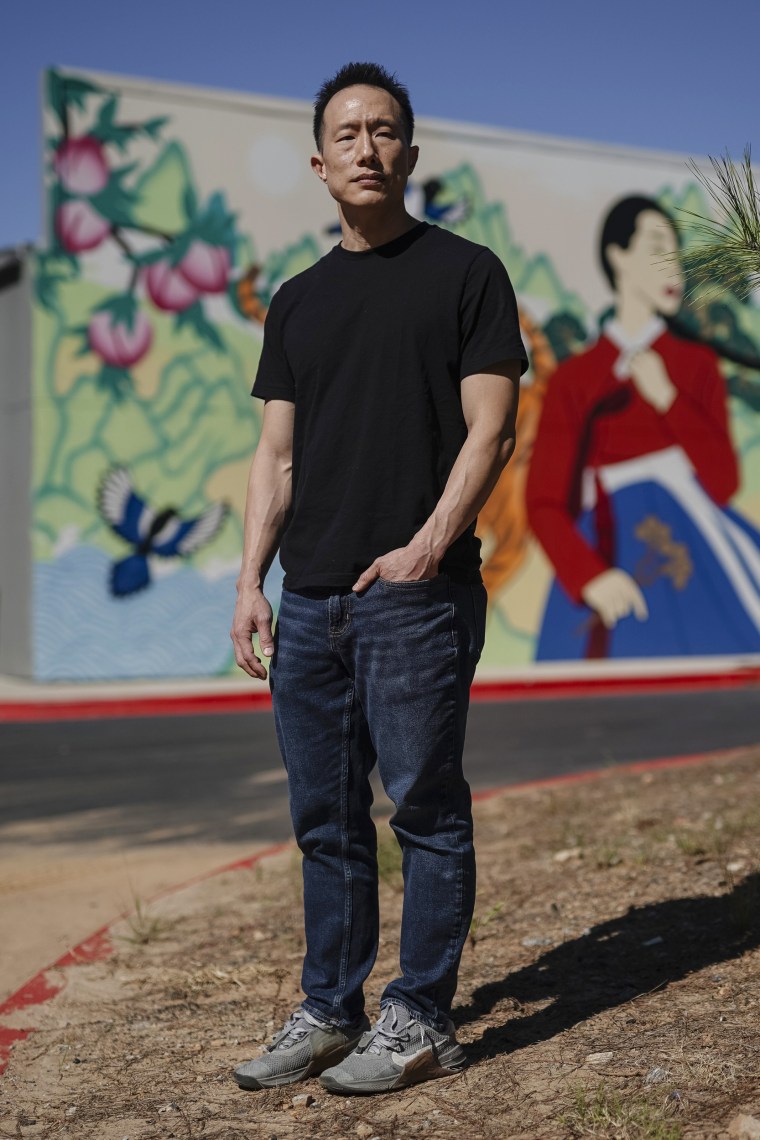
“The second-, third-gen immigrants that have been born here, like myself, are growing up and saying: ‘Hey, you know what? This is our home,’” said Kim, who opened up the distillery in Doraville, the town where his parents first settled. “We should have a vested interest in these elections.”
Voters like Jin Namgoong, 19, a college student, said that if politicians want to mobilize Asian Americans, they need to reach out to Korean churches and cultural places of worship. And LiFan Hsu, 44, who is voting for Harris, said the campaign might be missing out on the Meta-owned social media app Threads, a platform widely used among those of Taiwanese descent like her to discuss politics abroad.
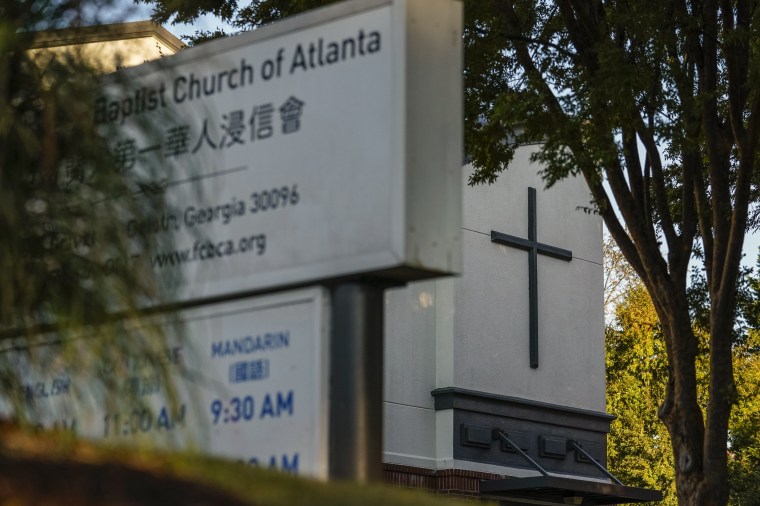
Nguyen said getting in-language materials in addition to more Asian American faces at front doors and campaigns is going to make a difference in building trust and swaying voters. She also said it’s important to go after Asian Americans as a whole but to understand specific ethnicities in a targeted way. Campaigns need to be “fluid,” she said.
“The opportunity is there for elected leaders to court Asian Americans,” Nguyen said. “I don’t feel, as a group, that they’re entrenched in one way or the other. It’s still fertile ground.”
Gwinnett County is one of the areas NBC News is tracking in series on “The Deciders,” a group of critical bellwether counties around the country this election.
